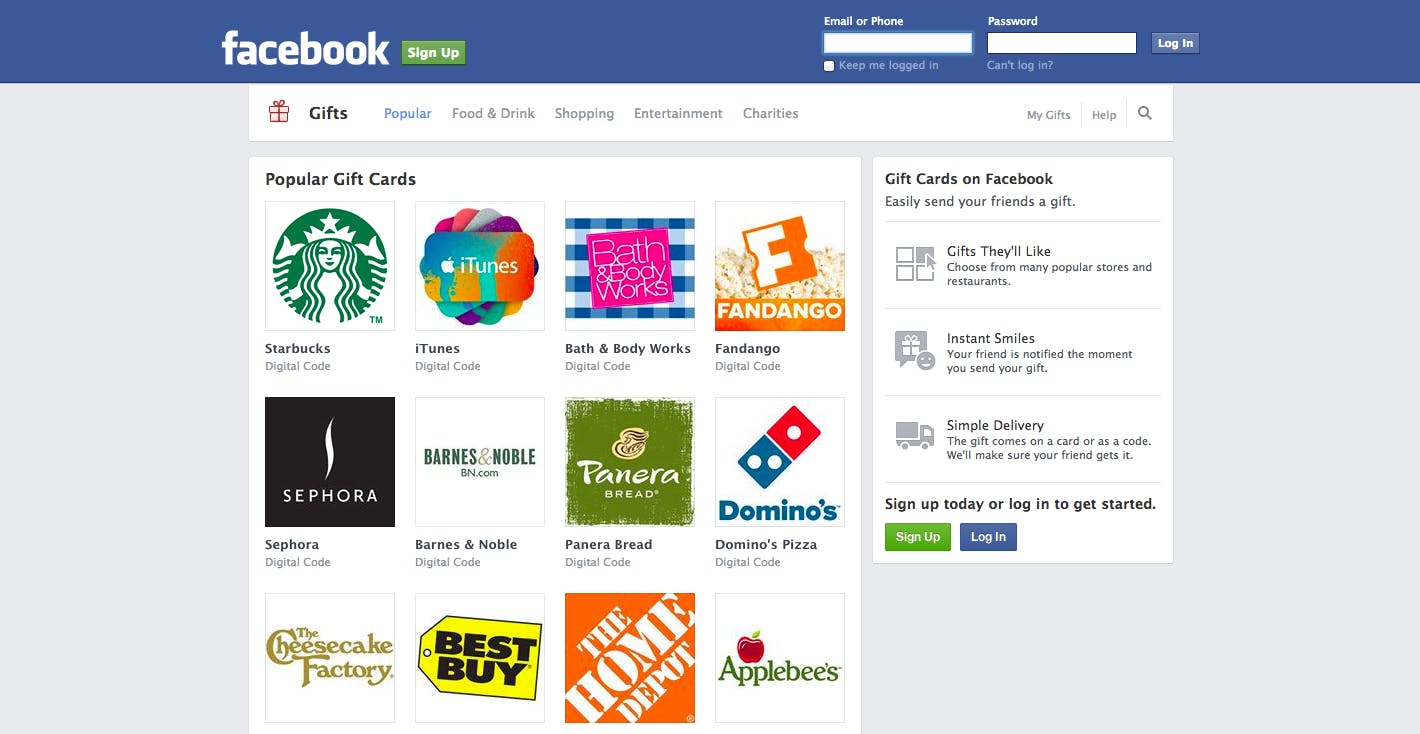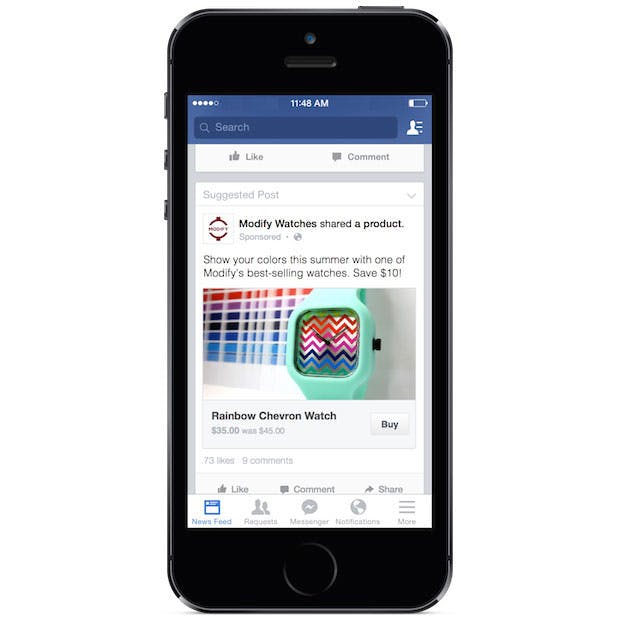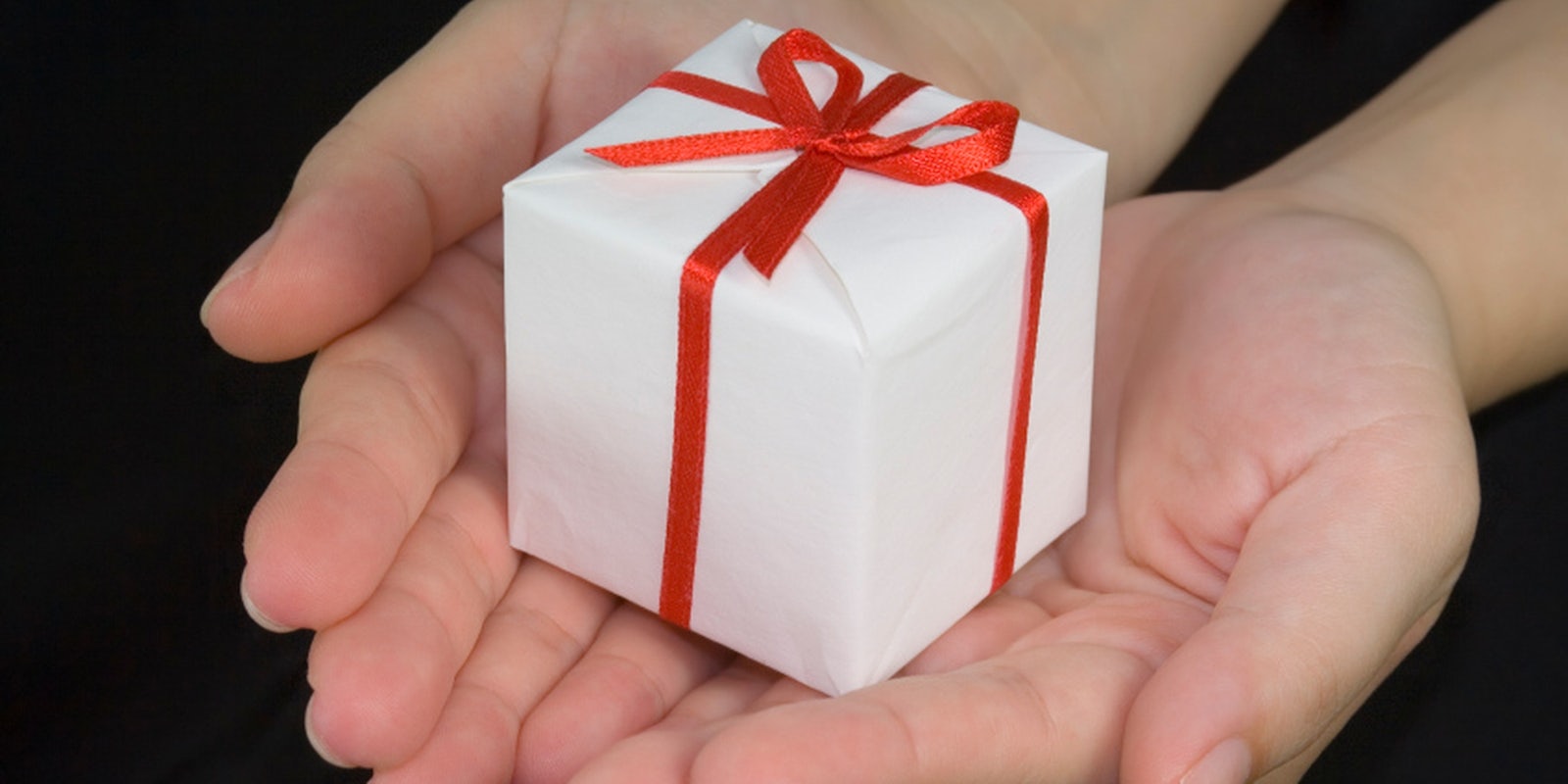Digital chivalry has gone out the window, at least for one seldom-used Facebook feature. The company announced that on August 12 it would discontinue Gifts, the on-site app that allowed users to digitally send tangible tokens of appreciation to their friends.
The decision comes almost a year after the company stopped offering the physical gift-giving branch of the service.

At its core, Gifts’ demise exemplifies Facebook’s failed attempt to integrate the entire birthday celebration experience into its social media platform. Even after its 2012 purchase of the gift-giving app Karma, the company struggled to find an audience wide enough willing to spend extra money when short and sweet message could be written on one’s wall at no cost.
But the short-lived existence of Gifts wasn’t in vain. “We’ll be using everything we learned from Gifts to explore new ways to help businesses and developers drive sales on the Web, on mobile, and directly on Facebook,” spokeswoman Tera Randall said in a statement.
Facebook has announced plans to keep inserting itself into day-to-day consumerism with the development of the Buy button, a feature currently in testing. Businesses will be able to allow Facebook users to purchase products directly on the social media site through advertisements or posts without the hassle of clicking a series of links. For mobile users, this means not having to switch to a different app to make a quick purchase. Buyers will be able to fill in their credit card information directly on Facebook.

TechCrunch reports that Facebook wouldn’t be getting a share of the revenue earned from purchasing through its site, though that could change depending on the Buy button’s success.
In addition, the added layer of data will allow users to utilize an auto-fill function released in April that will put in your card information so you don’t have to. Much like one can sign into Pinterest, Tinder, Spotify, and other sites by filling out their Facebook login information, a consumer would be able to make a purchase by clicking a button that automatically fills in the information already given to Facebook.
Despite the recent backlash the company has received over revelations that they manipulated users’ News Feeds, it would be foolish to assume that the company won’t use the new cache of data to enhance relationships with advertisers.


